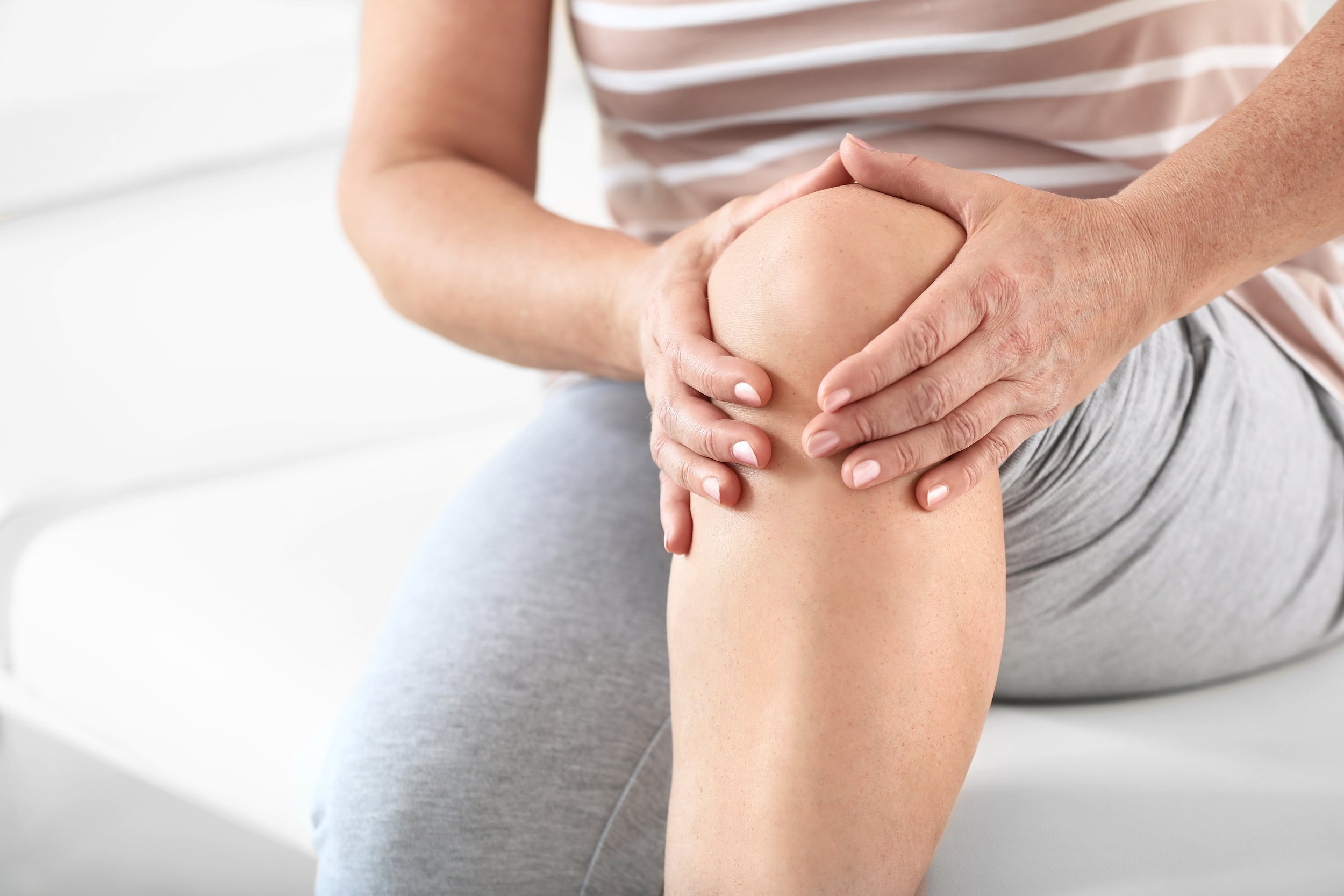What Causes Morning Knee Pain and Stiffness?
It's not uncommon for your knees to feel a little stiff in the morning, especially as you age. However, if it becomes a persistent problem and is accompanied by pain or swelling, it could be the beginning of arthritis in the knee joint.
In this article, we'll take a look at the most common types of knee arthritis, symptoms you may experience, and treatment options to ease your pain and improve your quality of life.
What Is Knee Arthritis?
Different types of arthritis affect the knee, but the two that Dr. Cafferky, an orthopaedic surgeon for The Steadman Clinic, sees most often are osteoarthritis and rheumatoid arthritis.
Knee osteoarthritis, a degenerative condition often affecting older adults, is the most common form of knee arthritis. It starts to develop when the cartilage that cushions the bones of the joint breaks down. As this happens, the bones begin to rub against each other, causing pain and inflammation.
The risk of osteoarthritis increases in people over the age of 50, but factors like obesity, joint injuries, or repetitive stress activities can also increase your chances of developing osteoarthritis. In some cases, the disease may be genetic.
Rheumatoid arthritis is an autoimmune disease where a person's immune system mistakenly attacks parts of the body, including the knee joints. This can cause the tissue (synovial membrane) around the joint to swell and, over time, break down the cartilage.
Unlike osteoarthritis, which tends to develop slowly over time, rheumatoid arthritis symptoms generally come on quickly and are more likely to impact both knees with similar symptoms.
Is Knee Pain and Stiffness in the Morning a Sign of Arthritis?
If you are consistently waking up with stiff or painful knees, it could be the beginning of arthritis. Symptoms may include:
Mild to severe pain in the joint
Knee stiffness
Locking of the knee
Snapping or crackling noise when you move your knee
Difficulty bending the knee
Swelling and warmth
However, knee pain is a symptom of several different conditions and injuries. If you're experiencing any of the above symptoms, it’s time to see an orthopaedic specialist for an accurate diagnosis and treatment plan.
What Are the Treatments for Knee Arthritis?
There isn't a way to cure arthritis, but there are treatment methods that can help manage the symptoms.
Dr. Cafferky and his team will work with you to develop the best approach based on the type of arthritis, your individual needs, and the severity of your condition.
Conservative treatments methods may include:
Exercises to strengthen the muscles that support the knee
Physical or occupational therapy to increase flexibility and make everyday tasks easier
Anti-inflammatory medications
Injections to reduce inflammation
Weight loss (if needed)
Braces to help support the knee or shoe inserts
If these treatments aren't effective or the symptoms have worsened to a point where they affect your ability to live life to the fullest, it might be time to consider knee replacement surgery.
Knee replacement surgery is a highly-effective treatment for severe arthritis of the knee. During this procedure, any damaged areas of the cartilage and bone are removed and replaced with artificial joint surfaces. There are two potential knee replacement procedures:
Total knee replacement surgery replaces all of the major joint surfaces. Learn more about total knee replacements.
Partial knee replacement surgery replaces select areas of bone and cartilage. Learn more about partial knee replacements.
Both options can provide excellent pain relief and improved function. If you're a candidate for knee surgery, Dr. Cafferky will work with you to determine the most effective procedure based on the extent of damage to your knee, your age and health, and your overall activity level.
Contact the Leading Knee Pain Doctor in Colorado Today!
If you're experiencing knee pain, contact Dr. Cafferky today. As the leading orthopaedic specialist in arthritis and knee replacement surgeries, he will work with you on a treatment plan that gets you back to living your active lifestyle.
Schedule an appointment with Team Cafferky by calling (970) 476-1100 or through their online contact form.




